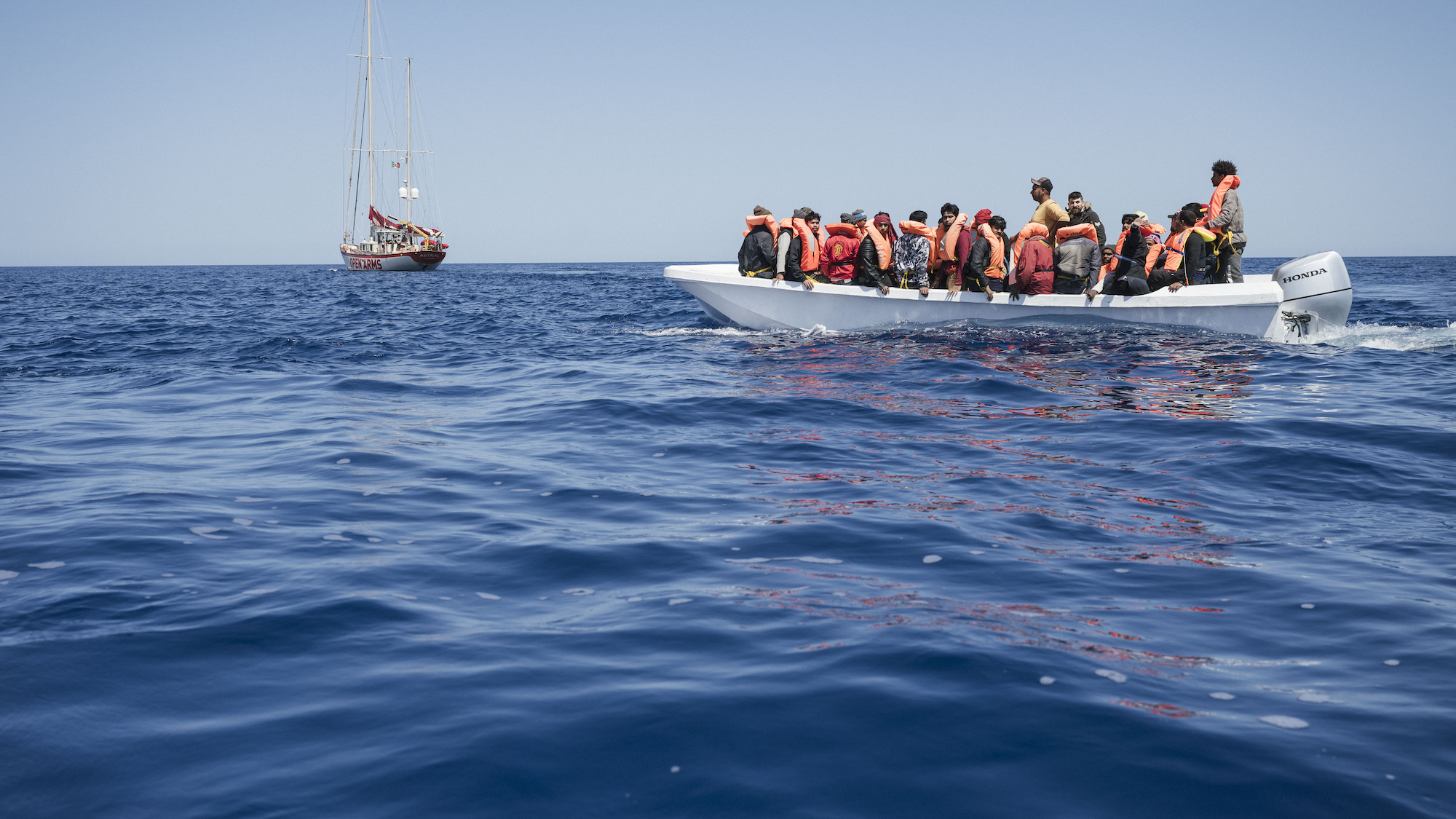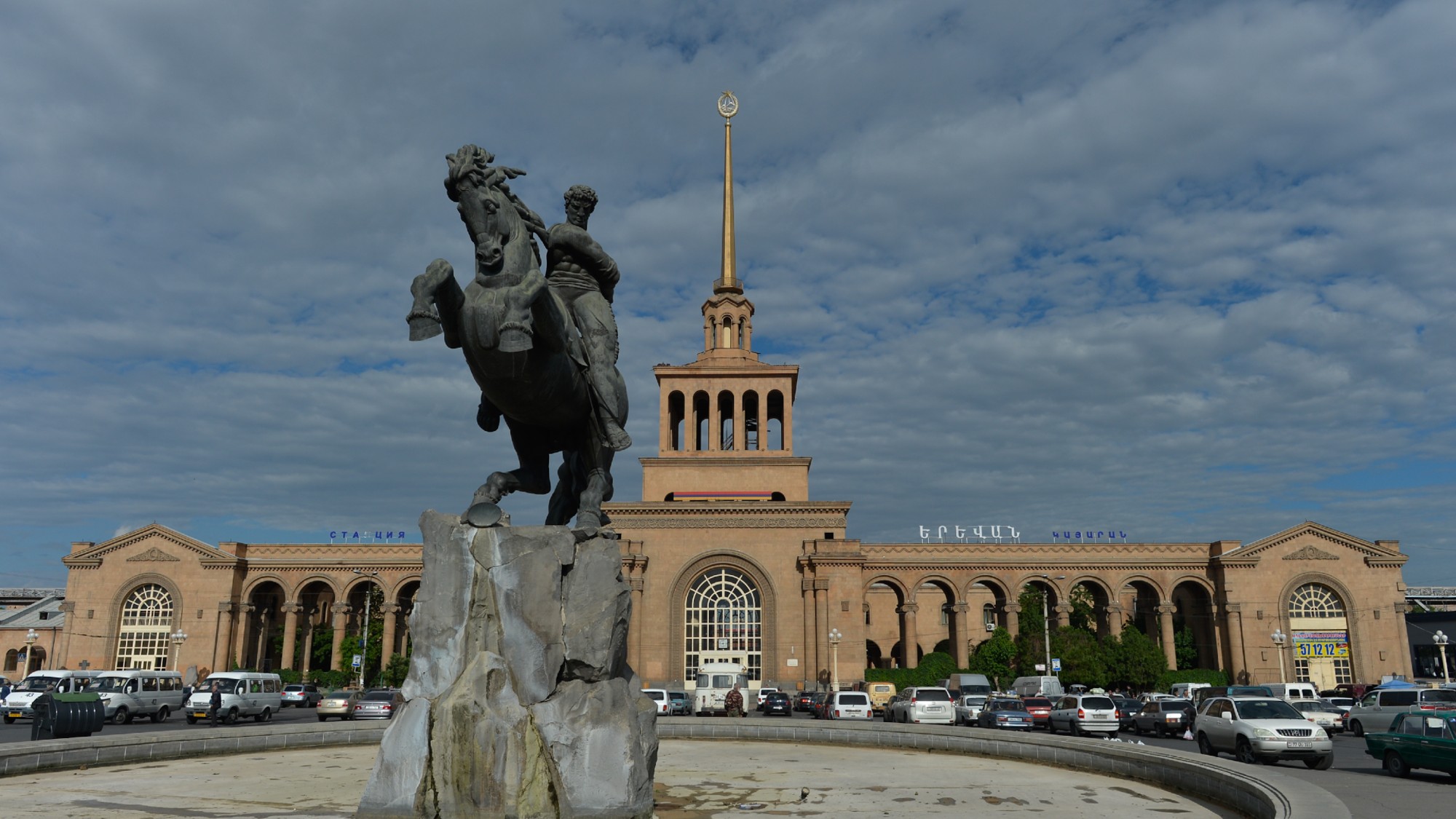How immigration is dominating politics across Europe
French president Emmanuel Macron is the latest European leader to come unstuck over tightening border controls

A free daily email with the biggest news stories of the day – and the best features from TheWeek.com
You are now subscribed
Your newsletter sign-up was successful
Emmanuel Macron has suffered one of the biggest setbacks in his six years as French president after his immigration bill was thrown out of parliament without even being heard.
Macron's bill, which was intended to show he "can take tough measures on migration while keeping France’s doors open to foreign workers who can help the economy", was defeated in a preliminary vote earlier this week, said The Guardian. It was an "unprecedented show of unity" between opposing sides of parliament who came together to defeat the bill, because it proved too extreme for the left and not far-reaching enough for the right, said Gavin Mortimer in The Spectator.
But France is far from the only European government being "menaced" by the issue of migration. Like Rishi Sunak and the Conservatives, "the divisions within Macron's party have been exposed by the question" of how to deal with high levels of migration. And like the British prime minister, leaders across Europe are desperately trying to find solutions to the issue.
The Week
Escape your echo chamber. Get the facts behind the news, plus analysis from multiple perspectives.

Sign up for The Week's Free Newsletters
From our morning news briefing to a weekly Good News Newsletter, get the best of The Week delivered directly to your inbox.
From our morning news briefing to a weekly Good News Newsletter, get the best of The Week delivered directly to your inbox.
What are countries in Europe doing?
Many countries across Europe have tightened their border controls in the wake of growing immigration numbers. France, Germany, Italy, Denmark, Norway and Sweden are among those beefing up security on certain borders, which usually allow for free, unfettered movement under the Schengen agreement.
The measures taken by Germany led to the number of illegal migrants falling "sharply" last month, said The Telegraph, with the issue one of the "fiercest public debates" currently taking place in the country. There is also a "major shift in tone" from the German government on immigration compared to the Angela Merkel era, with the Olaf Scholz-led coalition government introducing stricter measures along land borders.
There are "echoes" of the UK government's Rwanda plan in proposals made by Germany’s centre-right opposition, and Merkel's former party, the Christian Democratic Union (CDU), which is demanding a "sweeping overhaul of asylum rules", said Politico. It is suggesting asylum seekers entering Europe be "relocated to 'safe third countries'" where their applications will be processed. While the UK's Rwanda plan remains "mired in legal challenges", the German proposal would be extremely tough to implement given it would need the other EU members to agree to it.
The Italian government has meanwhile also set up a similar Rwanda-style scheme with non-EU Albania. In this instance, Albania will collect illegal migrants, men only, headed for Italy in boat crossings and process their applications at detention centres there. However, the agreement remains limited by EU law, which means only migrants picked up in non-EU waters can be processed in this manner. The policy too has been strongly criticised, with Amnesty International calling it "illegal" and "unworkable".
A free daily email with the biggest news stories of the day – and the best features from TheWeek.com
What is the EU doing?
The EU earlier this year signed a deal with Tunisia that it hoped would stem the flow of illegal migrants close to the source. The bloc was hoping the deal would act as a "template" that could be applied to other North African countries, said Politico, in which it would show "cash is king" in convincing these nations to help prevent illegal boat crossings.
But that deal appears to have stalled due to "escalating tensions" between Brussels and Tunisia, which handed back €60 million in funding over "dissatisfaction" with the European Commission.
Is there a long-term solution?
European leaders are united by the fear that a "botched policy on migration will cost them their jobs", said The Economist, and currently there is "little prospect for improvement" in stopping people smugglers from sending migrants to Europe. But leaders across the continent should be wary that "tomorrow it may be politely inviting in much the same people it is today letting drown", as it continues to try to tackle a Europe-wide labour shortage.
With that in mind, a "sensible remedy" to mass illegal immigration would be to "regulate and organise it", said Sylvie Kauffmann in the Financial Times. Immigration, which has consistently grown since the turn of the century, is a "global phenomenon which will not be stopped", she added, and regulating it to fill the "hard-to-fill jobs" will begin to combat the expanding issue of stagnant economic growth and an increasingly elderly population.
Richard Windsor is a freelance writer for The Week Digital. He began his journalism career writing about politics and sport while studying at the University of Southampton. He then worked across various football publications before specialising in cycling for almost nine years, covering major races including the Tour de France and interviewing some of the sport’s top riders. He led Cycling Weekly’s digital platforms as editor for seven of those years, helping to transform the publication into the UK’s largest cycling website. He now works as a freelance writer, editor and consultant.
-
 Buddhist monks’ US walk for peace
Buddhist monks’ US walk for peaceUnder the Radar Crowds have turned out on the roads from California to Washington and ‘millions are finding hope in their journey’
-
 American universities are losing ground to their foreign counterparts
American universities are losing ground to their foreign counterpartsThe Explainer While Harvard is still near the top, other colleges have slipped
-
 How to navigate dating apps to find ‘the one’
How to navigate dating apps to find ‘the one’The Week Recommends Put an end to endless swiping and make real romantic connections
-
 How are Democrats trying to reform ICE?
How are Democrats trying to reform ICE?Today’s Big Question Democratic leadership has put forth several demands for the agency
-
 Minnesota’s legal system buckles under Trump’s ICE surge
Minnesota’s legal system buckles under Trump’s ICE surgeIN THE SPOTLIGHT Mass arrests and chaotic administration have pushed Twin Cities courts to the brink as lawyers and judges alike struggle to keep pace with ICE’s activity
-
 ‘The West needs people’
‘The West needs people’Instant Opinion Opinion, comment and editorials of the day
-
 700 ICE agents exit Twin Cities amid legal chaos
700 ICE agents exit Twin Cities amid legal chaosSpeed Read More than 2,000 agents remain in the region
-
 Vietnam’s ‘balancing act’ with the US, China and Europe
Vietnam’s ‘balancing act’ with the US, China and EuropeIn the Spotlight Despite decades of ‘steadily improving relations’, Hanoi is still ‘deeply suspicious’ of the US as it tries to ‘diversify’ its options
-
 ‘Various international actors hope to influence the result for their own benefit’
‘Various international actors hope to influence the result for their own benefit’Instant Opinion Opinion, comment and editorials of the day
-
 House ends brief shutdown, tees up ICE showdown
House ends brief shutdown, tees up ICE showdownSpeed Read Numerous Democrats joined most Republicans in voting yes
-
 How ‘Manchesterism’ could change the UK
How ‘Manchesterism’ could change the UKThe Explainer The idea involves shifting a centralized government to more local powers